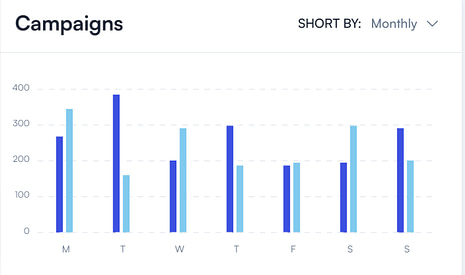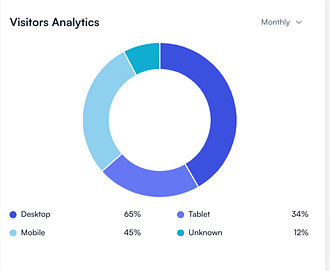The 5 Most Common Mistakes Buying Life Insurance
[ how to avoid them]
By James Tobin, CFP®
Critical Takeaways

Expert Review Of The Most Common Mistakes Buying Life Insurance

Reviewed by
Jim Tobin, CFP®
Why you can Have confidence in this review
At Bequest Mutual Life Insurance we value our editorial independence. We keep our reviews strictly factual so you can use them to make informed decisions. Life insurance carriers referred to on this site do not approve reviews.
If you're like most people, at one time or another, you have said to yourself "if I'd only knew then what I know now, things would be different". Well, here's your chance to avoid the 5 most common mistakes peoples make buying insurance .
Well, here's your chance to be "in the know", and avoid the 5 most common mistakes people make buying life insurance. This information alone will make you more knowledgeable than 90% of all consumers.
1. Lying To Agent About Medical /Driving History
While it may seem like an innocent slip of the mind to not mention a hospitalization, prescription, or most commonly a smoking habit, the consequences can be pretty serious.
The first consequence is you will most likely not get away with it. The insurance carriers have access to medical records, prescriptions medicines taken and driving histories.
So misleading the agent only gets you an inaccurate quote that has little chance of becoming an offer.
Being misquoted is only the start of what can go wrong when you are intentionally misleading.
Because different insurers have different underwriting rules for each risk ( some are willing to do cases others will not), it is important for an independent agent to know the circumstances he or she is working with.
If this sounds like an agent simply whining about having time wasted, you are only partly right, the more serious result is to the person seeking coverage.
This is because if based on bad information an application is sent to a carrier that is a bad fit (once the truth comes out) it may get rated substandard or even declined.
A declination from one carrier can adversely affect a future application with another carrier that would have accepted you.
The information gathered by the first carrier will be entered into the Medical Information Bureau (MIB), this information (possibly also a note about deception) will be available to all carriers for 7 years.
Lastly, if you do get away with lying on your application and the carrier contests the benefit payment in court on the basis of a fraudulent application, you may find yourself in a position of having the benefit reduced to the payments made plus interest.
The downside to misleading your agent can cost more than what is likely to be gained .
2. Choosing Permanent Insurance For A Temporary Need
The battle between Term v. perm insurance has been raging for years and unlike most partisans I think there is a place for both. However, the two products serve distinctly different needs.
If you are looking to cover a decreasing obligation (like a mortgage) term insurance is the appropriate solution. It is also a far less expensive solution for the term for the term it is needed.
Too often, people shopping for life insurance are "sold" permanent cash value insurance at the cost of covering an insurable need. While there are several traits to permanent insurance that make it useful and appropriate as a retirement planning tool , it should not be "in competition" with dollars spent on insuring a family need.
When structured correctly permanent cash value insurance is designed as a living benefit savings tool with a minimized the death benefit necessary to keep it legally considered insurance. This can be a very useful tool, but it is not appropriate as true "insurance".
The exception to this is Guaranteed Universal Life (GUL) that is a hybrid policy. GUL is permanent insurance that doesn't gain cash value and is priced between the two.
When shoppers use permanent insurance for temporary needs, they either skimp on the amount of benefit they need to cover the need or they over extend themselves and wind up walking away from the big permanent policy.
Shoppers should look at these two products separately and not in competition with each other. Meet the insurable need obligation first and then consider if permanent life insurance is an appropriate arrow in your financial quiver.
3. Relying On Life Insurance Provided Through Employer
Having life insurance through your employer is a nice perk. It should however, be thought of as bonus coverage , rather than your primary life insurance. The reason is simply that at some point you will very likely change employers.
Upon changing employment, you may not be offered life insurance at the new employer, and not be able to take the insurance from the previous employer with you.
Nearly all group life insurance policies offer a conversion to permanent for the departing individual. However, the terms are traditionally so onerous that no one takes up the offer.
So, in a worst case scenario, you leave your employer after an economic downturn, are forced to take a job without the group life insurance perk, and now find that your health won't allow for easy individual underwriting. Thus, you are forced to either pay far more than you had been paying or forego life insurance protection for your family.
This situation came to fruition time and again during the Great recession of 2008-2010. It could have easily been avoided had people not looked at their employer insurance as primary but rather "extra".
Healthy people in their early thirties can get term life insurance that will last till retirement for the cost of a pizza....and not have to worry that a job change and age or declining health will make replacement unattainable..
4. Not Using An Independent Agent
The use of an independent Agent is an issue that I touch on in nearly every post on this site. While it may be self serving , it is also the undeniable truth.
Because different insurance carriers have different risk appetites, the only way to get the best deal is to have access to nearly all of them.
If your "captive" Agent ( an Agent who primarily works for one carrier and has a financial incentive to send all business to that carrier) represents a carrier who is particularly severe in grading a health condition you have, you are in a tough spot.
Whereas, an independent Agent would simply send your application to the carrier who takes a more favorable look at your condition, the captive will be forced to send the application to his company ...and charge you more.
While some so called "captives" have the ability to use a limited outside brokerage when it is in the client's interest, the truth is that the financial incentives to write business with the "home" company often outweigh this option.
5. Not Taking The Exam Seriously
This should be an easy one, but it gets screwed up more than you'd think.
The para-medical exam that is a staple of fully underwritten policy applications is pretty straight forward. That is, blood, urine, weight and Blood Pressure (occasionally EKG). It is usually over in 15 minutes and you are back to your day.
Because blood and urine analysis is a snapshot in time, you cannot do a lot to improve things in a brief time period. However, you can do seriously hurt them for the "snapshot".
Some of the things that have caused problems are :
Working Out
Excessive Alcohol
Fried Foods
Drinking Coffee
Lack of Sleep
While living "clean" may not help much in the short run , avoiding these thing for a couple of days can't hurt. For a more on the exam please see here.
6. A Bonus Mistake To Avoid
It may seem contradictory that this guide spills considerable digital ink on the subject of avoiding mistakes and saving money, and then says don't be too cheap.
If you are confused, I understand. Let me explain.
While Bequest Mutual Life Insurance is all about getting the best deal, it is not always about spending the absolute least amount of money. The truth is getting the best deal depends on what you need and what you are getting.
Unfortunately policies are not all apples to apples comparisons. as mentioned earlier, all carriers view different risks differently. So unless you know your risk class with a particular carrier the pricing is not precise.
There are additional considerations that impact pricing that you may entice you to pay slightly more in price. These include:
Financial Ratings of the Carrier - Does the S&P or AM Best rating of the carrier matter to you? Are you willing to pay more for a higher rating?
No Exam Option- Some carriers offer policies with no exam. Is avoiding needles, blood, and possible unknown results worth a dollar or two a month.
Riders/Conversion Options- Does the right to buy more insurance without requalifying later interest you? How about the right to convert the policy to a permanent option at a later date without taking a new exam.
If any of these issues is important to you, then the definition of "best deal" changes from simply the lowest cost. These are all issues that can be addressed by an independent agent with access to a multitude of carrier options.








